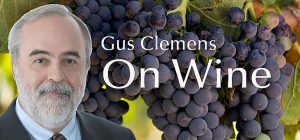Australia burns. A billion animals killed. Apocalyptic trailer to what happens if we do not address global warming.
All true, but some perspective. As has been the case with similar global warming firestorms in California, the story is horrific, but it is not the end of the wine world. Australian authorities expect less than two precent of Aussie vineyards have been affected by the conflagrations. The same is true in California.
Vineyards are especially resilient. They are a rigorously controlled environment, with separations between rows and control of foliage. The emphasis is grapes, not flammable material.
In Australia, the Adelaide Hills suffered greatest damage. The region’s executive officer, Kerry Treuel, told Decanter: “Unfortunately some vineyards are completely burnt but there are other areas where vines are still intact with no signs of fire damage. The fire moved quickly and sporadically throughout the region, jumping roads, vineyards and properties. So, while the fire scar is spread across a vast area, the emergency services and local volunteers and growers themselves did a truly amazing job to limit its impact to certain areas. It’s important to note that there was minimal to no smoke in the region over the days following.”
And there is the admirable human element. Wine Australia’s chief executive, Andreas Clark: “What we have seen in the past and no doubt will again in the future is an astonishing generosity where people have donated grapes and labour to assist their neighbours and friends to recover.”
Same in California. Nature may knock winemakers down—that is part of the deal—but winemakers have gotten up for more than 8,000 years. This time is no different. That does not diminish the message to us about dealing with global climate change.
Tasting notes:
• Messina Hof Blanc du Bois Private Reserve, Texas 2017: Similar to dry riesling—crisp, refreshing, slightest hint of sweetness on the finish. Texas grows more blanc du bois grapes than anyplace else in the world. $19 Link to my review
• Mullan Road Cellars Columbia Valley Red Wine 2016: Elegance and finesse rather than big and bold. Very smooth, approachable, silky. Not a hard edge in the pour. $40-45 Link to my review
• Capensis Chardonnay, Western Cape, South Africa 2015: Smooth, elegant, sophisticated. Superb expression of chardonnay. Vividly illustrates why South African wines should be in your cellar or wine fridge. $75-80 Link to my review
Last round: Coffee keeps me focused and busy until it is time to drink wine when my goal is to be not focused and busy.

